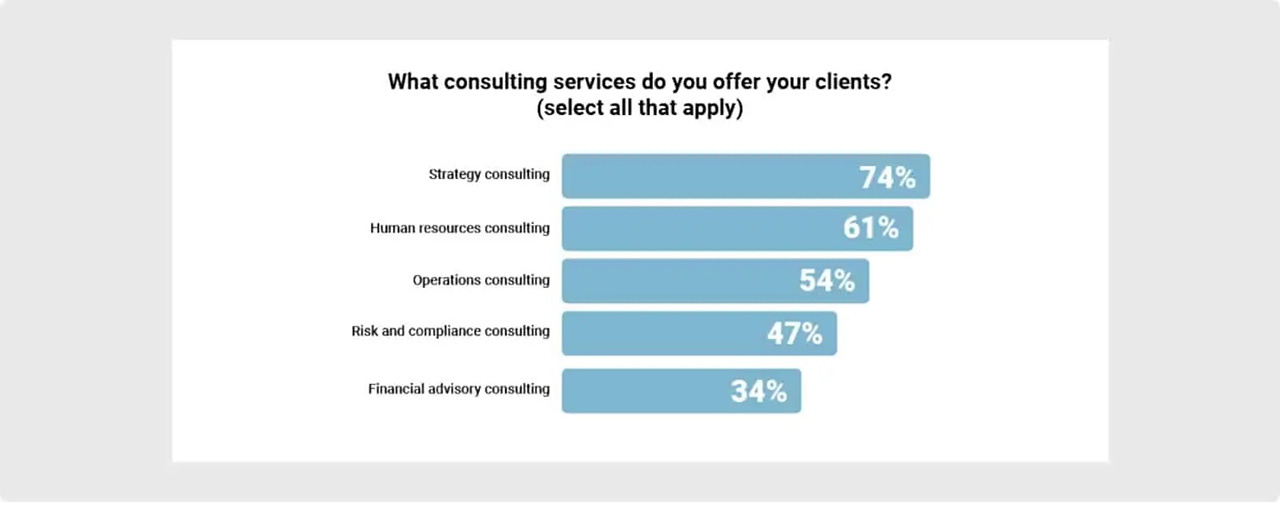
What is an environment consultant? An environment consultant is a person who conducts research on the environment, interprets it, and creates reports for clients. They also offer advice and consultation to clients, ensuring that environmental rules and regulations are followed. Consultants handle varied and complex responsibilities depending on the requirements of their clients. They also manage projects, oversee their effectiveness, and ensure compliance with environmental laws. They may also conduct field studies, which involves the collection and analysis of data.
Job description
An environment consultant's job involves many aspects. This individual provides advice to clients and produces reports and presentations. They conduct field research and collect data from locations. The environment consultant must be able explain their findings to clients and others in a clear manner. The environment consultant might work in many different fields. However, they will need to be able to communicate their findings in an understandable manner.

The job of an environmental consultant is to advise clients on planning and environmental policy. They can advise clients on issues such as recycling, waste management, and flood risk. They can also design and plan environmental remedial measures that reduce environmental impact. They may also be responsible for project delivery and keeping clients informed about the latest environmental policies. And because they handle projects with limited budgets, environmental consultants have to manage their time efficiently in order to save money for their clients.
Education requirements
The education requirements to become an environment consultant are very detailed. Students who have graduated in environmental engineering, environmental science, or geology often choose to specialize. These fields require specialized training. However, minors in communications, business, public relations or communications may be useful. A deep understanding of environmental regulations and policies is necessary, but candidates must also have soft skills such as negotiation, leadership and project management. Environmental consultants should have the following qualities to succeed:
Students who are interested in becoming an environmental consultant should consider pursuing an internship at a governmental or private company. This internship will provide valuable experience and connections that can help you find employment after you graduate from university. As a technician or field consultant, you will gain hands-on experience conducting analysis and collecting environmental samples. Candidates should have at most two to five years' experience in the field to be eligible for a position as a consultant.
Salary
Environmental consultants help to identify environmental problems and develop solutions. They may be hired by government agencies to help plan infrastructure projects and address environmental challenges. Environmental specialists are also hired by large companies to develop sustainable business practices and reduce environmental hazards in their supply chains. Some of these consultants also deal with toxic cleanup and other environmental issues. Their job duties can vary greatly, but they typically earn up to $60,000 per year. Expect to earn a range based on your experience and range in salary for environment consultants.

Higher salaries are possible for graduates who have worked in the relevant field. Many consulting firms offer graduate training programs, even though it is difficult to get into this industry with an HND. Volunteer work at local environmental agencies can provide relevant work experience. Most environmental consultants work for either the public sector, or private companies. The minimum qualification for entry is a degree or certificate in environmental engineering/environmental science.
FAQ
How did modern consultancy become possible?
The first consultants were accountants that helped companies manage finances. They were able to manage financial information and became "accounting experts". However, this role soon expanded into other areas, such as human resources management.
The French word for advice, "consultant", was originally used to describe someone who could advise on the management of an organization. Even today, many business owners still use "consultant" when referring to professional advisors.
What are the benefits of consulting?
As a consultant, you can usually choose when you work and what you work on.
This allows you to work wherever and whenever you want.
This allows you to easily change your mind and not worry about losing your money.
Finally, you can control your income and set your own schedule.
What skills are necessary for consulting?
Consultants should be able to communicate effectively and have excellent analytical skills. This is vital because you may not understand the scope of your work. You need to be able to manage people quickly and solve problems efficiently.
Excellent communication skills are also essential. Most clients expect an answer within 24 hours. If they don't hear anything, it is likely that they aren't interested in you. It's crucial to keep them informed and make sure they understand everything.
Statistics
- "From there, I told them my rates were going up 25%, this is the new hourly rate, and every single one of them said 'done, fine.' (nerdwallet.com)
- According to statistics from the ONS, the UK has around 300,000 consultants, of which around 63,000 professionals work as management consultants. (consultancy.uk)
- So, if you help your clients increase their sales by 33%, then use a word like “revolution” instead of “increase.” (consultingsuccess.com)
- According to IBISWorld, revenues in the consulting industry will exceed $261 billion in 2020. (nerdwallet.com)
- Over 62% of consultants were dissatisfied with their former jobs before starting their consulting business. (consultingsuccess.com)
External Links
How To
How to find the best consultant
The first thing to do when looking for a new consultant is to ask yourself what you want from him/her. Before you look for someone, you need to be clear about your expectations. It is important to make a list with all the requirements you have for a consultant. This could include: professional expertise and technical skills, project management capabilities, communication skills, availability, etc. After you have listed your requirements, it might be a good idea to ask colleagues and friends for their recommendations. Ask your friends or colleagues about any negative experiences they have had with consultants, and compare their recommendations with yours. Do some internet research if they don't have recommendations. You can post reviews on your previous work experiences on many websites like LinkedIn, Facebook and Angie's List. Use the feedback and ratings of others as a starting point to search for potential candidates. Once you have a short list of candidates, contact them to arrange an interview. In the interview, discuss your needs and ask them for their suggestions on how you can achieve them. It doesn't matter if they were recommended to your company; all that matters is that they are able to understand your business goals and show how they can help.